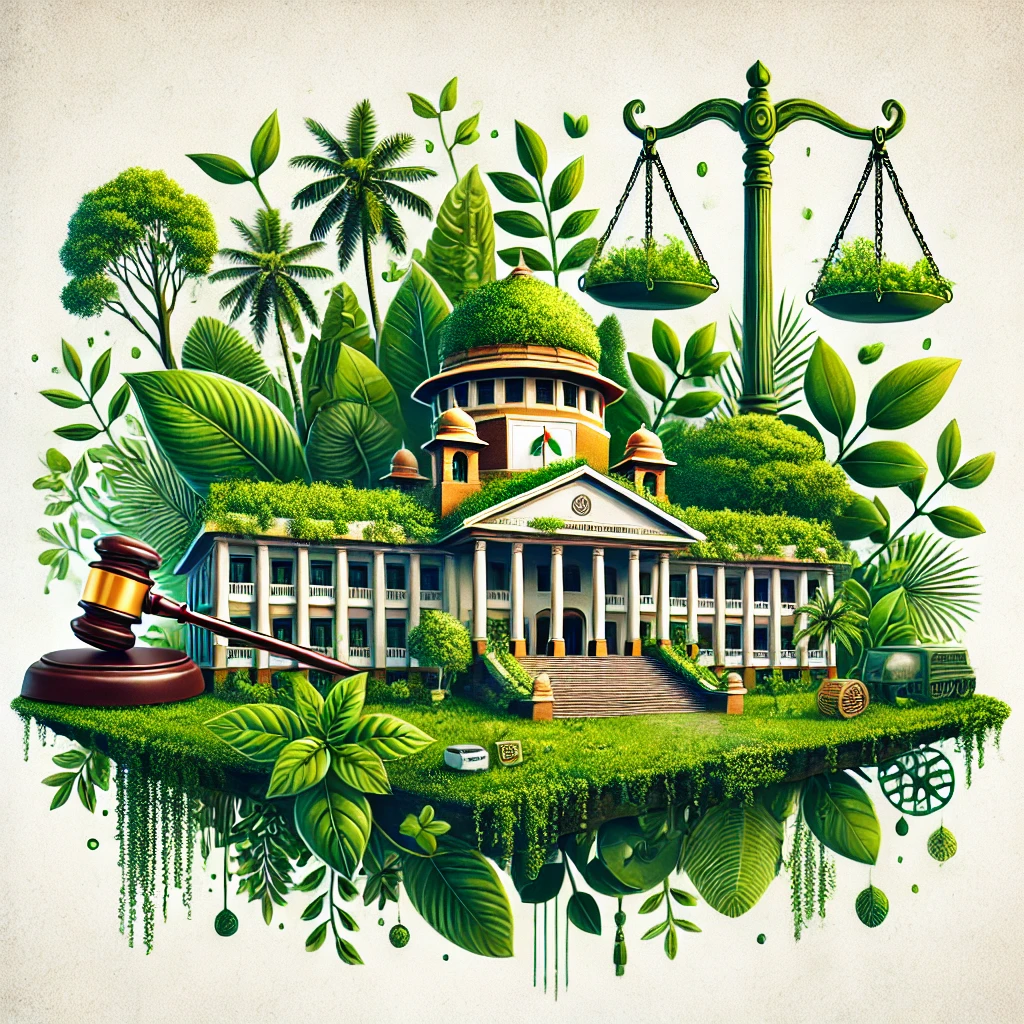Environmental laws at Turkey
Turkey has a relatively robust framework of environmental laws and regulations that aim to protect its natural resources, preserve biodiversity, and address issues such as pollution, waste management, and sustainable development. These laws are aligned with both national priorities and international standards, and Turkey is a signatory to several key international environmental agreements. Here's an overview of the major environmental laws and regulations in Turkey:
1. Constitutional Framework
The Constitution of Turkey (1982) includes provisions for environmental protection. Article 56 of the Constitution states that everyone has the right to live in a healthy environment and imposes a duty on the state to ensure the protection of the environment and the natural resources of the country.
2. Environmental Law and Regulations
The Environmental Law No. 2872 (1983) is Turkey’s primary national environmental legislation. It sets the framework for environmental protection and covers a range of issues, such as pollution control, waste management, and resource conservation. Some key aspects of the law include:
Pollution Prevention: The law regulates air, water, and soil pollution by setting limits on emissions and discharges from industrial facilities and other sources.
Environmental Impact Assessment (EIA): The law requires that projects likely to have significant environmental impacts undergo an Environmental Impact Assessment (EIA) before they are approved. The EIA process evaluates the potential effects of projects and suggests mitigation measures.
Monitoring and Enforcement: The law provides for the monitoring of environmental quality and the enforcement of regulations through penalties and fines for non-compliance.
3. Air Quality and Pollution Control
Turkey has established regulations to address air quality and limit emissions of harmful substances. Some key laws and regulations include:
Regulation on Air Quality (2005): Sets air quality standards and regulations for industries, including limits on emissions of pollutants such as sulfur dioxide (SO2), nitrogen oxides (NOx), and particulate matter.
Regulation on Industrial Air Pollution Control (2009): Aims to limit emissions from industrial activities by setting emission limits for various pollutants.
4. Water Law and Management
Water Pollution Control Regulation (2004): This regulation sets standards for the discharge of pollutants into water bodies and is designed to protect water quality. It includes provisions on wastewater treatment, river basin management, and aquatic ecosystem protection.
Law on Water Management (2014): This law regulates the management of Turkey's water resources, focusing on efficient use, protection of water ecosystems, and ensuring public access to clean water.
Regulation on the Protection of Groundwater Resources: This regulation addresses the conservation and quality of groundwater resources, which are essential for drinking water and irrigation.
5. Waste Management and Hazardous Waste
Waste Management Regulation (2004): This regulation sets rules for the management of municipal solid waste, including waste collection, disposal, and recycling. It aims to reduce waste generation and promote recycling and reuse.
Regulation on Hazardous Waste Control (2005): This law governs the management and disposal of hazardous waste, including industrial waste, chemicals, and waste from medical facilities.
Extended Producer Responsibility (EPR): Turkey has introduced systems for managing the waste produced by certain products, particularly packaging materials and electronic waste, by requiring manufacturers to take responsibility for the end-of-life disposal of their products.
6. Biodiversity and Conservation Laws
Nature Protection Law (1983): This law focuses on the conservation of biodiversity and the protection of endangered species. It designates protected areas such as national parks, nature reserves, and wildlife protection zones. The law is aimed at preserving Turkey's rich flora and fauna, including rare and endemic species.
Biodiversity Strategy and Action Plan (BSAP): Turkey has developed a national strategy to protect biodiversity, in line with the Convention on Biological Diversity (CBD).
The Law on the Protection of Cultural and Natural Assets (1983): This law includes provisions for protecting natural monuments, geological formations, and other natural heritage sites, ensuring their preservation for future generations.
7. Climate Change and Energy
Climate Change Action Plan: Turkey has recognized the importance of addressing climate change and has implemented several measures to reduce greenhouse gas emissions. Turkey ratified the Paris Agreement in 2021, and its climate action plans focus on reducing emissions and increasing renewable energy use.
Regulation on Energy Efficiency: Turkey has introduced laws aimed at improving energy efficiency, reducing energy consumption, and promoting the use of renewable energy sources such as wind, solar, and geothermal energy.
Greenhouse Gas Emissions Monitoring: Turkey has established a system to monitor and report on greenhouse gas emissions from industrial sectors, and it is working toward implementing carbon pricing mechanisms.
8. Environmental Protection Agencies and Institutions
Ministry of Environment, Urbanization, and Climate Change: This is the main governmental body responsible for environmental regulation and policy in Turkey. It oversees the implementation of laws and regulations related to pollution control, waste management, biodiversity, and climate change.
Environmental Impact Assessment (EIA) Directorate: Part of the Ministry, this directorate is responsible for overseeing the EIA process for development projects to ensure that environmental impacts are considered before approval.
Turkish Statistical Institute (TUIK): TUIK is responsible for monitoring and publishing environmental data in Turkey, including statistics on air quality, waste generation, water use, and emissions.
9. International Agreements
Turkey is a signatory to several important international environmental agreements:
Paris Agreement on Climate Change: Turkey is committed to reducing greenhouse gas emissions and implementing policies to mitigate the impacts of climate change.
Convention on Biological Diversity (CBD): Turkey is a signatory to the CBD and has developed strategies for biodiversity conservation in line with international standards.
Ramsar Convention: Turkey is a signatory to the Ramsar Convention, which aims to conserve wetlands of international importance.
10. Environmental Education and Public Awareness
Turkey promotes environmental education and awareness through various initiatives, aiming to involve citizens and industries in sustainable practices. This includes programs to raise awareness about recycling, energy conservation, and the protection of natural resources.
11. Challenges and Future Directions
Despite having a relatively strong environmental legal framework, Turkey faces challenges such as:
Enforcement: There are concerns about the effective enforcement of environmental laws, particularly in industrial sectors.
Urbanization: Rapid urbanization and industrialization have led to significant environmental pressures, including air pollution, waste management challenges, and habitat loss.
Climate Change: As a country vulnerable to climate change, Turkey faces the challenge of balancing economic development with environmental protection and climate resilience.
In conclusion, Turkey has a comprehensive set of environmental laws that aim to protect its natural resources, regulate pollution, and ensure sustainable development. These laws are evolving in response to new environmental challenges, including climate change and resource depletion. However, effective enforcement and public participation remain key factors in achieving the goals of environmental sustainability.












comments